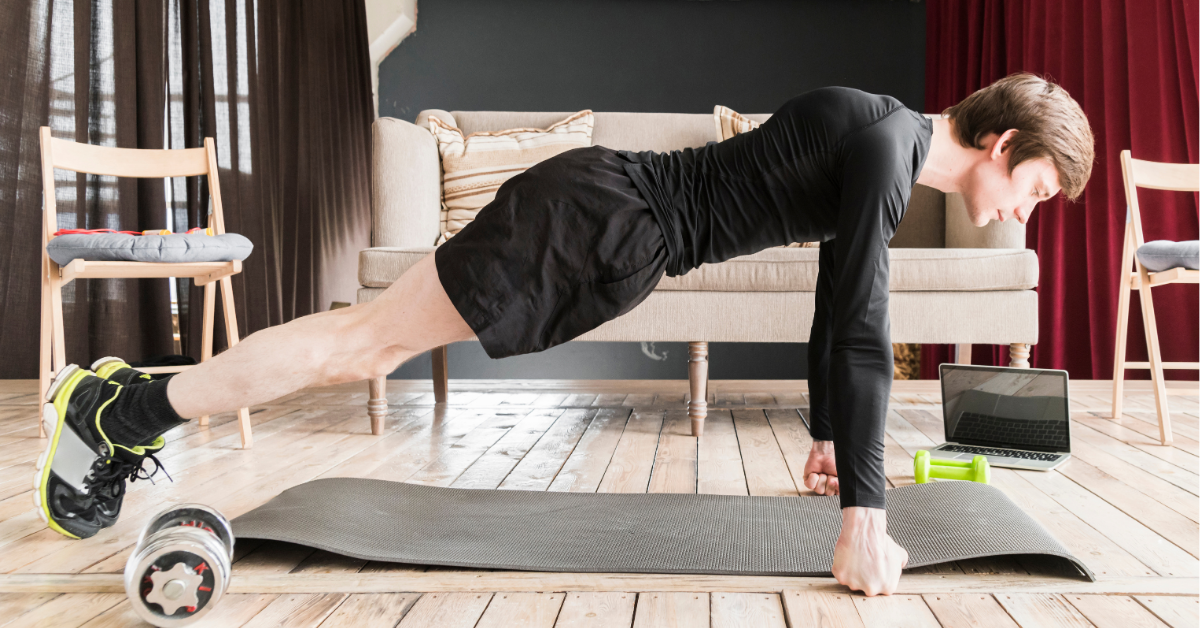Starting to wrap things up, I really want to clear up this gym puzzle a significant number of us think about: is it amazing, or not, to hammer your core every single day to get those strong, flat stomach muscles? Several people aiming for that thin waist figure hitting the gym nonstop is the way to go, because who doesn’t want a small waist-but deciding if that’s the way to rock it’s not that simple, in what you may think is stark contrast.
We must delve into how the body actually deals with all that exercising, what core training is really about, and how to evenly balance it with the rest of our health hard work.
Understanding Core Exercises
The undertaking strived to make the muscles stronger not only in your belly-but also those around your midsection and hips. We are talking about the rectus abdominis, obliques, transverse abdominis; and note the lower back and hip muscles. We delve into several great exercises to get these areas strong, such as planks, crunches, leg raises; and we even include some exciting activities like mountain climbers and Russian twists-but it’s not only concerned with getting that six-pack.
These exercises seriously help in making your posture better, keeping you balanced on your feet—and making sure you’re solid and stable when you’re doing any other, rather physical, activities.
The Physiology of Muscle Recovery
In discussing whether it’s beneficial or harmful to do core exercises daily, it’s important to start by understanding the step-by-step sequence of muscle recovery, following exercise. When you push your body during a workout or by lifting weights, your muscles go through some harm. It might sound concerning-but it’s a normal part of getting stronger.
Through the months and years, your body repairs these damages, boosting your muscles’ strength and enabling them to successfully deal with more effectively. There is a profound and deep-seated strengthening of grasp necessary to realize that, fundamentally, this regeneration is absolutely needed for muscle toughness and resilience.
To be honest, I consider getting enough rest crucial, especially when you like to exercise. If you don’t take breaks, your muscles won’t have the chance to heal or get stronger, and you might end up working out too much. When that happens, you could start feeling extremely tired, see your performance go downhill, or even start hurting.
It might have been hard to believe before-but it turns out your core muscles need this break time just as much as your arms and legs do.
Benefits of Daily Core Workouts
Experts believe your core muscles can handle more work than the others, despite the incredible weightiness of rest. It regards endurance, not simply pure strength. Your core isn’t only about becoming extremely strong similar to your quads or chest muscles–but about keeping you upright and stable so you don’t sway all day. This journey of solving problems tells us your core can be used more frequently than other muscles.
The hermetic result of this is understanding how you can train your core different from your other body parts.
Quick Recovery: Core muscles typically recover more quickly due to their smaller size and higher endurance capacity. This can make daily, low to moderate-intensity workouts feasible.
Risks of Daily Core Workouts
While there are potential benefits to daily core exercises, there are also risks considering:
Even the strongest core muscles need breaks to recover. When someone trains too much, it makes their muscles tired, brings down their performance, and increases the risk of injury. If someone focuses only on working out their core, this can make things unbalanced. Ignoring other muscle groups makes weak spots that affect how well someone does in sports or other activities and increases the chance of injuries.
Without enough downtime, muscles can’t repair or get stronger, which stops improvements in both strength and stamina; there is unsurprisingly a potential to harm performance and health by not balancing workout routines and rest periods.
Finding the Balance
To not hurt yourself while doing core exercises, you must understand it’s only concerned with not going too crazy and keeping things balanced. Here’s how you can put core exercises in your schedule without blundering: Always check on how you’re feeling after working out every day. If you’re always sore, tired, or just not doing very well like before, it’s probably a sign you need to relax a bit.
Jumbling how hard you go is another important deal. Have some days where you really push it, and other days take it easier or just take a break. This way, your muscles get a short rest but still get stronger. Don’t simply focus on your stomach muscles or whatever; make sure you’re doing items for your whole body too. The airtight result of this is making sure not only one part is strengthened drastically but keeping everything strong and balanced.
Include some full-body exercises to make sure you’re working on all your muscles. This avoids putting too much focus on one spot and keeps you all-around solid.
Make sure you’re doing the exercises right, even if you have to stop for a moment or do a smaller number of repetitions. Getting the posture spot-on is extremely important to avoid getting hurt and to really pass those fitness goals. Although it may seem silly, you must take breaks. Include some rest days because that’s the time when your muscles heal and grow stronger.
Personalisation is Key
Core training isn’t the same for everybody. Your own things, like how fit you already are, what you want to reach, and any health issues you are facing, should really steer what you do. If you’re just starting out, hitting core workouts three or four times a week could be a smart choice. Then, as you get stronger and can do more, you can increase the amount of times you work out–but make sure to really notice what your body is saying.
By doing this, one may immerse themselves in the knowledge that what they’re doing is right for them.
The Role of Diet and Hydration
Definitively, if we’re speaking about getting fit, we can’t skip over how crucial eating right–and making sure you drink enough water is. A balanced diet packed with proteins, good fats, and carbs is key, because it gives you the energy you need for your exercise and to recover afterward. Also, eating well helps your muscles repair and grow, and keeping hydrated pushes your recovery and athletic ability up a notch.
A discerning reader, such as yourself, will surely comprehend that staying on top of your food and water approach is a major part of staying in shape.
The Mental Aspect
For many, slipping in some core exercises into their everyday routine can actually turn into a good habit that makes overall life better. Even though working out focuses on physical material, it also picks up your mood very much because of chemicals in your brain, which really stop your stress. Although it may seem incongruous, doing daily exercises, such as items for your core, has mental perks too.
Expert Opinions
Some people who really know their material about fitness can’t agree on if it’s good or not to work out your core muscles each and every day. There are those who are an advocate for exercising your core daily because they say it helps with everything we do every day, and you probably won’t overdo it. However, it may have once seemed unfathomable–but we know that working out too much can actually be a bad thing.
According to some experts, who think being active each day might be too much for your muscles, and emphasize taking breaks is extremely important.
Fitness trainer Joe DeFranco suggests, “While the core muscles can be worked more frequently than other muscle groups, they still need time to recover. Incorporating rest days and varying exercises can prevent overuse injuries.”
On the other hand, Dr. Stuart McGill, a renowned back pain expert, emphasises the importance of variety and rest. “Daily core exercises can be beneficial if done correctly, but it’s crucial to include different movements and allow for recovery to prevent overtraining.”
Conclusion
Is working out your core every single day wonderful, it really comes down to several different things. Think about how fit you’re already, what you’re trying to get out of the workouts, and how your body’s basically taking all the exercise. The muscles in your core are pretty tough; they’re made to last through a large amount of workouts.
But, it is, moreover, apparent to you and me that keeping a good mix of how hard you push yourself—providing yourself some relaxed days, and paying attention when your body’s signaling for a break—matters a lot. You want to stay clear of working out too much and ending up hurt.
Before I finish up this write-up, I really want to make sure you get this: to strengthen your middle part and improve your health plan, you must mix up your workouts, secure the right way to do them, and note to relax and heal. Also, remember upgrading your core’s toughness isn’t something you can rush through – it’s more of a long game, so go slowly and enjoy it.




